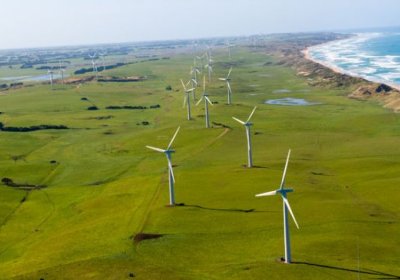According to Australia’s outgoing discrimination commissioner Graeme Innes, racism is still a big problem in Australian society.
This is nothing new. Racism has been an issue in Australia since the very beginning of white colonisation, when Aboriginal people were forced from their lands to make way for the new colonial Australia.
But racism, like our society, has changed with the times. This throws up new challenges in tackling it.
894
“We are not evacuating Rikers Island,” New York Mayor Michael Bloomberg said in a news conference on August 26.
Bloomberg announced a host of extreme measures being taken by New York City in preparation for the arrival of Hurricane Irene.
These included shutting down the public transit system and the unprecedented mandatory evacuation of about 250,000 people from low-lying areas.
But in response to a reporter’s question, the mayor stated in no uncertain terms (and with more than a hint of annoyance) that one group of New Yorkers on vulnerable ground would be staying put.
"The pay offer is a lemon" has been the theme of protests by Australian Taxation Office (ATO) workers around Australia over the past two weeks.
Workers have put lemons on their desks and stuck up posters of lemons to symbolise their rejection of management's pay offer of 9% over three years, which is less than the rate of inflation.
Some workers have called for strike action in the tax office, as has happened in other government agencies.
National environmental justice and indigenous rights organisation the Indigenous Environmental Network (IEN) that took part in the largest act of civil disobedience in decades at the White House in Washington DC from August 20 to September 3.
The purpose of these actions was to send a direct message to President Barack Obama to deny approval of the 2739 kilometre Keystone XL pipeline.
Supporters of Fijian workers rallied in Melbourne on September 2 against a recent crackdown by the military regime.
The same day, two Fijian trade unionists, Fiji Trades Union Congress president Daniel Urai and National Union of Hospitality, Catering and Tourism organiser Nitin Gounder, appeared in a Fijian court charged with unlawful assembly because they met with their union members to discuss a collective agreement.
The Fijian trade union movement is under very heavy attack by the Fijian military government. New laws aiming to make it virtually impossible for unions to exist.
It has become a cliche in mainstream media and political discourse that feminism is no longer necessary in society. However many ordinary women disagree.
Green Left Weekly asked members of the newly formed Feminist Collective of South Australia about feminism’s relevance today.
Emma Gray-Starcevic said: “Women still earn on average 17% less than men in Australia, and are under-represented in a huge number of jobs, especially in industries such as law, business and politics — jobs synonymous with high wages and powerful positions.
The day after the Barry O’Farrell Coalition government was elected in NSW in March, NSW Business Chamber CEO Stephen Cartwright said he wanted action in the first 100 days of the new government.
He said business wanted O’Farrell to cut government spending, sign up to the weaker federal occupational health and safety laws (OH&S), appoint a Small Business Commissioner, establish Infrastructure NSW, and produce the first report card on the progress of the Pacific Highway upgrade.
An article, “Targeted chocolatier Max Brenner ‘a man of peace’”, in the August 13 Australian by Cameron Stewart purported to be an examination of issues around the targeting of Max Brenner by Palestine solidarity protesters as part of the global boycott, divestment, and sanctions (BDS) campaign.
If you’ve even casually followed the climate debate in Australia over the past few years, it’s most likely you’ve heard a Labor or Liberal party politician utter the phrase: “Governments should not pick winners.” The idea is that governments’ role is not to give direct support to renewable energy such as wind power or solar power, but instead to create the market conditions where the best, most efficient technology can come to the fore. But the argument is always used as an excuse for why governments cannot pick clean, renewable energy.
The statement below is being circulated by Power to the People, a campaign group which formed during the fight against electricity privatisation in NSW and the newly formed NSW Union Activist Network, made up of left and green union activists.
The Orica chemicals plant at Kooragang, near Newcastle NSW, released hexavalent chromium (VI) into the atmosphere on August 8. Up to 20 workers were exposed in the accident.
The Environmental Protection Authority (EPA) was not notified of the accident for 16 hours. Residents of nearby Stockton were not told that the toxic pollutant blew over their suburb for 54 hours.
The land around Muckaty Station, 120 kilometres north of Tennant Creek in the Northern Territory, was nominated as a possible site for a nuclear waste dump by the Northern Land Council in May 2007. This was accepted by the federal government in September 2007.
Natalie Wasley from the Beyond Nuclear Initiative told Green Left Weekly: “A small group of traditional owners, hoping for cash for their impoverished community and improved services like roads, housing and education, agreed to the dump site. However, many other traditional owners remain opposed to the plan.
- Previous page
- Page 3
- Next page










